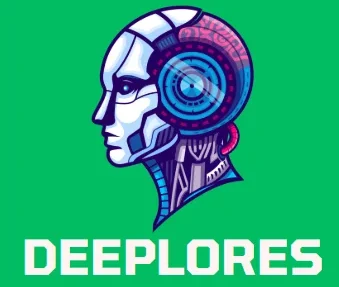Why is Quantum Computing Useful for Optimization Problems?
Quantum computing – a revolutionary field that promises to redefine our understanding and application of computation – has become a hotbed of interest in the scientific community. Its most promising attribute? An unprecedented potential to solve complex optimization problems that are beyond the reach of classical computers.
In our information-driven world, the capacity to solve these problems swiftly and accurately can usher in a new age of efficiency, innovation, and discovery. Let’s unravel the enigma of quantum optimization and dive deep into “Why is Quantum Computing Useful for Optimization Problems?”.
The Perplexity of Optimization Problems

Optimization problems lie at the core of numerous disciplines – from logistics and supply chain management to machine learning and financial modeling. These problems involve finding the best solution from a vast solution space and, in many instances, can be notoriously hard to solve using classical computers. This is especially true for problems characterized by their combinatorial nature, which makes the solution space grow exponentially with problem size.
For such problems, classical methods like integer programming, genetic algorithms, or simulated annealing might struggle due to sheer computational resource requirements. This is where quantum computing can potentially step in, offering a new, faster, and more efficient path to the solution.
Quantum Computing: A Game Changer in Optimization

Quantum computers exploit the principles of quantum mechanics to process information. Two primary quantum phenomena – quantum superposition and quantum entanglement – provide quantum computers with a distinct edge over their classical counterparts.
Quantum Superposition: An Orchestra of Solutions
A classical computer processes information in binary units called bits, which can exist in one of two states: 0 or 1. In contrast, quantum computers use quantum bits or qubits, which thanks to the principle of superposition, can exist in a combination of states. This means that a qubit can represent multiple solutions at once, vastly speeding up the search for the optimal solution.
Quantum Entanglement: A Dance of Correlations
Quantum entanglement – another strange yet beautiful phenomenon of quantum mechanics – allows qubits to become intertwined, such that the state of one qubit instantly affects the state of another, regardless of distance. This profound connection helps construct and navigate the complex correlation landscape of optimization problems, further empowering quantum computers to solve these problems more efficiently.
Quantum Algorithms: The New Trailblazers

Several quantum algorithms have been designed to leverage these quantum properties, specifically for optimization problems. One such algorithm is Grover’s algorithm, which provides a quadratic speedup over classical search algorithms. It’s particularly effective in unstructured search problems, demonstrating the potential for quantum speedup.
Another class of quantum algorithms used for optimization is quantum annealing algorithms, which are ideal for solving complex combinatorial optimization problems. The quantum annealing process traverses the solution landscape using quantum fluctuations, effectively moving between multiple states to seek out the lowest energy state, i.e., the optimal solution.
Quantum Supremacy: The Frontier Awaits
In recent years, we’ve seen the first instances of quantum supremacy – where quantum computers outperform classical computers in specific tasks. The most notable example is Google’s Sycamore processor, which in 2019, performed a computation in just 200 seconds – a feat estimated to take the world’s fastest supercomputer 10,000 years.
These pioneering developments, while still in their nascent stage, signal the dawn of a new era in optimization and computation at large. As quantum technology matures, we may witness its potential in addressing NP-hard optimization problems that have remained unsolved for decades.
The Quantum Computing Toolbox: Techniques for Optimization
As we’ve mentioned, quantum computing makes use of unique principles that lend themselves well to solving optimization problems. However, it’s not just the use of qubits that empowers these advancements. Specific methods and models, such as the Ising model and quantum annealing, are instrumental in applying quantum capabilities to these complex problems.
Ising Model: Mapping Out Problems
In the realm of quantum computing, optimization problems are often represented using the Ising model, a mathematical model from statistical mechanics. The Ising model captures the interaction between different variables (or spins) in a system, presenting a powerful tool to represent combinatorial optimization problems in a format that can be processed by a quantum computer.
Once the optimization problem is framed within the Ising model, it becomes a problem of finding the minimal energy state in a complex energy landscape – a task uniquely suited to quantum computers.
Quantum Annealing: Efficient Searching
Quantum annealing, a metaheuristic for finding the global minimum of a given objective function over a given set of candidate solutions, is a cornerstone of quantum optimization. It is a quantum version of simulated annealing, where thermal fluctuations are used to traverse the energy landscape of a problem.
In quantum annealing, however, we utilize quantum fluctuations. This quantum “tunneling” effect allows the system to jump through energy barriers, directly from one state to another, rather than climbing over them. It enables the exploration of more solutions in the same amount of time, potentially leading to more efficient optimization.
Advancing Quantum Algorithms: An Ongoing Journey
Building on the foundation of early quantum algorithms such as Grover’s algorithm, the focus of ongoing research is to develop more efficient, scalable quantum algorithms that can fully harness the power of quantum computers.
One such example is the Quantum Approximate Optimization Algorithm (QAOA). QAOA, proposed as a method for combinatorial optimization, uses a variational approach combining quantum and classical computing. This is known as a hybrid quantum-classical approach and is one of the most promising avenues for near-term quantum computing.
These advancements in quantum algorithms are the result of continuous, dedicated research in the field. As quantum technology becomes more advanced and accessible, we can expect an explosion of new quantum algorithms designed to tackle complex optimization problems.
Real-world Quantum Optimization: A Quantum Leap for Industries
The potential of quantum computing isn’t merely theoretical. In fact, several industries stand to be revolutionized by the application of quantum computing to optimization problems.
Supply Chain Management
In supply chain management, complex optimization problems abound – from routing vehicles to managing inventories. Quantum computing could potentially provide innovative solutions to these challenges, enabling more efficient supply chain operations and reducing costs.
Financial Services
Portfolio optimization is a significant challenge in the financial industry. It involves selecting the best portfolio from a vast range of possible portfolios, considering various constraints. Quantum computing, with its potential to process multiple solutions simultaneously, could provide an unprecedented advantage in this area.
Drug Discovery
In the pharmaceutical industry, drug discovery involves exploring a vast space of possible molecules. Identifying the right molecules with desired properties is a daunting optimization problem. Quantum computing could potentially accelerate this process, leading to faster drug discovery and more effective medicines.
While these applications are in early stages, they offer a glimpse of what’s possible when quantum computing and optimization come together.
Embracing the Quantum Future: The Road Ahead
Although quantum computing’s promise in optimization is clear, it’s important to note that the technology is still maturing. As with any technology in its early stages, challenges need to be addressed. Quantum decoherence, qubit quality, and the development of more efficient quantum algorithms are among the key hurdles on the path to large-scalequantum optimization.
But even with these challenges, the quantum journey has well and truly begun. With tech giants like IBM, Google, and Microsoft investing heavily in quantum research, the future of quantum computing is poised to redefine our approach to optimization problems.
Quantum computing’s application to optimization problems is likely to be one of the earliest breakthroughs in this exciting field. As we push forward with our understanding and development of quantum systems, we also edge closer to solving some of the world’s most complex optimization problems. The end result? A potential revolution in industries far and wide.
Frequently Asked Questions About Why is Quantum Computing Useful for Optimization Problems?
How does quantum annealing compare to classical optimization techniques?
Quantum annealing leverages quantum superposition and entanglement to potentially navigate through the solution space more efficiently than classical techniques. By utilizing quantum tunneling, quantum annealing can traverse the energy landscape in a way that classical methods cannot, offering potential speedups.
Are there any specific industries or domains that can benefit from quantum optimization?
Yes, numerous industries stand to benefit from quantum optimization. Some of these include logistics and supply chain management, financial services, pharmaceuticals, and machine learning. In each of these fields, quantum computing’s ability to navigate large, complex solution spaces can potentially lead to significant improvements.
What are the challenges in implementing quantum computing for optimization at scale?
Several challenges need to be addressed for large-scale quantum computing. These include quantum decoherence (preventing the rapid loss of quantum information), improving the quality and scalability of qubits, and developing efficient quantum algorithms.
What are the advantages of using quantum computing for optimization?
Quantum computing can potentially provide a significant speedup over classical methods for certain optimization problems, especially those of a combinatorial nature. This speedup is due to quantum phenomena like superposition and entanglement.
Can quantum computing solve NP-hard optimization problems?
While it’s still a subject of ongoing research, quantum computing holds promise in tackling NP-hard problems, which are incredibly hard to solve on classical computers. Quantum algorithms, such as quantum annealing, have been shown to solve instances of these problems.
What are the limitations of quantum computing for optimization problems?
Quantum computing is still in its early stages, and several challenges need to be addressed, such as quantum decoherence, qubit quality, and the scalability of quantum systems.
Are there any real-world applications of quantum computing in optimization?
While we’re still in the early days of quantum computing, potential applications are being explored in various fields such as logistics, financial modeling, machine learning, and drug discovery, among others.
What are some popular quantum algorithms for optimization?
Grover’s algorithm and quantum annealing algorithms are among the most well-known quantum algorithms used for optimization tasks. They leverage quantum mechanics to provide potential speedups over classical methods.
How does quantum entanglement contribute to solving optimization problems?
Quantum entanglement allows the state of one qubit to instantly affect the state of another, regardless of distance. This phenomenon can be harnessed to construct and navigate the complex correlation landscape of an optimization problem, potentially enabling more efficient solutions.
Can quantum computing outperform traditional optimization approaches?
While quantum computing has shown promise in providing speedups over classical methods for certain types of optimization problems, it’s important to note that the technology is still in its early stages. Ongoing research and development are necessary to fully understand the potential of quantum computing in outperforming traditional optimization approaches.
Also Read: What Describes the Relationship Between Edge Computing and Cloud Computing?
Conclusion: Embracing the Quantum Future
Quantum computing holds an unparalleled potential to transform how weaddress optimization problems. While the field is still in its infancy, early indicators show that quantum algorithms could provide the exponential speedup necessary to solve complex optimization problems that remain inaccessible to classical computing methods.
Indeed, harnessing the power of quantum computing can bring forth a leap in multiple domains that hinge on solving complex optimization problems. The supply chain industry could streamline their operations, financial institutions could refine their portfolio management, and artificial intelligence could achieve new heights in machine learning.
Despite the compelling promise of quantum computing, there are several challenges in implementing it for optimization at scale. These include mitigating quantum decoherence, improving qubit quality, and developing more efficient quantum algorithms. Yet, with sustained research and development efforts, these hurdles are not insurmountable.
The quest for quantum supremacy is more than a scientific endeavor – it is a venture that holds the potential to redefine the landscape of computation and problem-solving. As we continue to explore and advance this frontier technology, we lay the groundwork for a future where quantum-optimized solutions are the norm, not the exception. So, Dive in, and explore “Why is Quantum Computing Useful for Optimization Problems?”.







